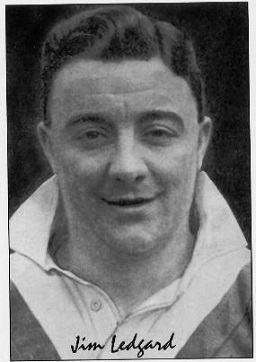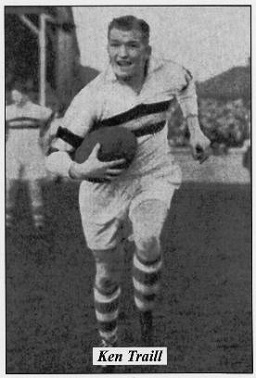Related Research Articles
The Middlesex Sevens was a Rugby Sevens tournament held annually at Twickenham stadium in London, England until 2011. It was first held in 1926, and started by Dr J.A. Russell-Cargill, a London-based Scot. The event was held at the end of the rugby union season in May every year for 75 years, but moved to August in 2001 due to lack of available stadium dates and players in May. The Middlesex Sevens tournament was last played in 2011, as the new Premiership Rugby 7s Series caused many of the top clubs that previously took part to pull out.

Morley Rugby Football Club is a rugby union club based in Morley, West Yorkshire. England. The club are famous for playing in a maroon kit and thus are nicknamed "The Maroons". They currently play in Regional 2 North East, a level six league in the English rugby union league system, following their relegation at the end of the 2017-18 season.

Coventry Rugby Football Club is a professional rugby union club based in Coventry, England. The club enjoyed great success during the 1960s and 70s, with many players representing their countries. Coventry's home ground is the Butts Park Arena, which opened in 2004. Between 1921 and 2004, the club played at Coundon Road. The club plays in the RFU Championship following their promotion from the 2017–18 National League 1.

Wakefield RFC was an English rugby union club, founded in 1901 and folded in 2004 as a result of poor finances, with a trading loss of £105,000 for the season and unsecured creditors' loans of approximately £640,000. The club's final season was in 2003–04 when they were relegated after losing to Coventry RFC in their final match. The club was based at College Grove in Wakefield, West Yorkshire.
Jeffrey Butterfield was an England, British and Irish Lions, Yorkshire, Cleckheaton RUFC, Northampton and Barbarians Rugby player and businessman.

The Oxford University Rugby Football Club is the rugby union club of the University of Oxford. The club contests The Varsity Match every year against Cambridge University at Twickenham.

James "Jim"/"Jimmy" Ledgard was an English rugby union and World Cup winning professional rugby league footballer who played in the 1940s, 1950s and 1960s, and coached rugby league in the 1960s. He played club level rugby union (RU) for Sandal RUFC, and representative level rugby league (RL) for Great Britain, England and Yorkshire, and at club level for Dewsbury, and Leigh, as a goal-kicking fullback, and coached at club level for Bradford Northern.
Old Northamptonians Rugby Football Club is a rugby union club located in Northampton, Northamptonshire. The first XV was promoted in 2022–23 and currently play in Regional 1 South East, a fifth tier league in the English rugby union system.

Kenneth Traill was an English professional rugby league footballer who played in the 1940s and 1950s, and coached in the 1950s, 1960s and 1970s. He played at representative level for Great Britain, England and Yorkshire, and at club level for Hunslet, Bradford Northern, Halifax and Wakefield Trinity, as a loose forward, and coached at club level for Wakefield Trinity.

College Grove sports ground is a multi sport facility in Wakefield, West Yorkshire, England. It is owned and run by Wakefield Sports Club Ltd.
Herbert Kershaw, also known by the nickname of "Harry", was an English rugby union, and professional rugby league footballer who played in the 1900s, 1910s and 1920s. He played representative level rugby union (RU) for Yorkshire, and at club level for Wakefield RFC, and representative level rugby league (RL) for Great Britain, England and Yorkshire, and at club level for Wakefield Trinity (captain), as a forward.

Donald "Don" Metcalfe was an English rugby union, and professional rugby league footballer who played in the 1950s and 1960s, and coached rugby league in the 1960s. He played club level rugby union (RU) for Sandal RUFC, and representative level rugby league (RL) for England (Under-21s), and Yorkshire (captain), and at club level for Featherstone Rovers (captain), and Wakefield Trinity, as a fullback or centre, and coached at club level for Keighley.
Bryan Barley was a former England international rugby union centre.
Richard Martin Alford Kingswell was an English rugby union official who was president of the Rugby Football Union between 1972 and 1973.
John Joseph Duggan was an English rugby union, and professional rugby league footballer who played in the 1940s and 1950s. He played club level rugby union (RU) for Wakefield RFC, as a wing, and representative level rugby league (RL) for Yorkshire, and at club level for Wakefield Trinity, as a wing.
David Malcolm Rollitt was an England rugby union international and teacher, who won eleven caps between 1967 and 1975. He played in the position of No 8.

Middlesex Rugby is the governing body for rugby union in Middlesex, England; Middlesex is a historic county of England that covers areas in the ceremonial counties of Greater London, Surrey and Hertfordshire. The historic county is still in use when referring to sport, and some businesses in the area. Middlesex RFU was originally created as the Middlesex County Rugby Club but within six years was being referred to as the Middlesex County Rugby Football Union and is now known simply as Middlesex Rugby.
John Christopher Daly was an Irish rugby union and professional rugby league footballer who played in the 1940s and 1950s. He played representative level rugby union (RU) for Ireland and Munster Rugby, at invitational level for Barbarian F.C., and at club level for Cobh Pirates RFC, Cork Constitution and London Irish, as a prop, and representative level rugby league (RL) for Other Nationalities and British Empire XIII, and at club level for Huddersfield and Featherstone Rovers, as a prop. When Jack Daly ran onto the playing field he used to do a double somersault, and before international matches he would do double back-somersaults to confirm his fitness.
Hunslet F.C. was a professional rugby league club based in Hunslet, Leeds, West Yorkshire, England. The club was a founding member of the Rugby Football League in 1895.
Terry Garnett is a former rugby union player who played as a flanker or hooker for Hull and East Riding, Wakefield, Rotherham, Yorkshire and the North of England. He also represented an England XV in the RF Oakes memorial game.
References
- ↑ "Philip Joseph Taylor".
- ↑ Wakefield Express 8/1/1955
- ↑ Wakefield Express 22/6/1966
- ↑ Wakefield Express 19/11/1949
- ↑ Wakefield Express 7/4/1951
- ↑ Yorkshire RFU Centenary booklet 1869-1968
- ↑ "Home". barbarianfc.co.uk.
- ↑ Wakefield Express 5/9/1959
- ↑ Wakefield Express 26/2/66
- ↑ Wakefield Express 5/9/1959
- ↑ "RFU Pays Tribute to Philip Taylor". England Rugby. 29 October 2019. Retrieved 19 December 2023.